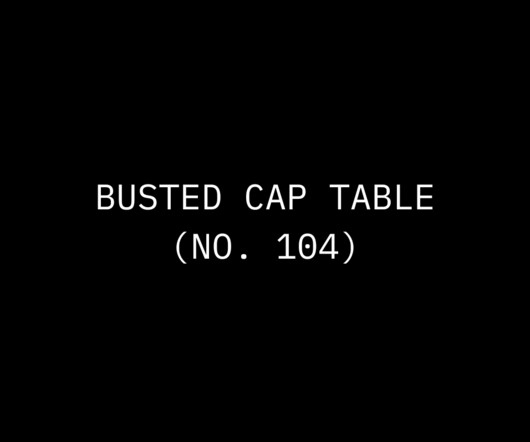The BSList - Busted Cap Table (No. 104)
This is going to be BIG.
AUGUST 21, 2023
Before we get into a debate about how much a founder should own, there’s a context implicit in the question that is easily overlooked. Before we get into a debate about how much a founder should own, there’s a context implicit in the question that is easily overlooked. That doesn’t make you a bad founder. Did you spot it?
















Let's personalize your content